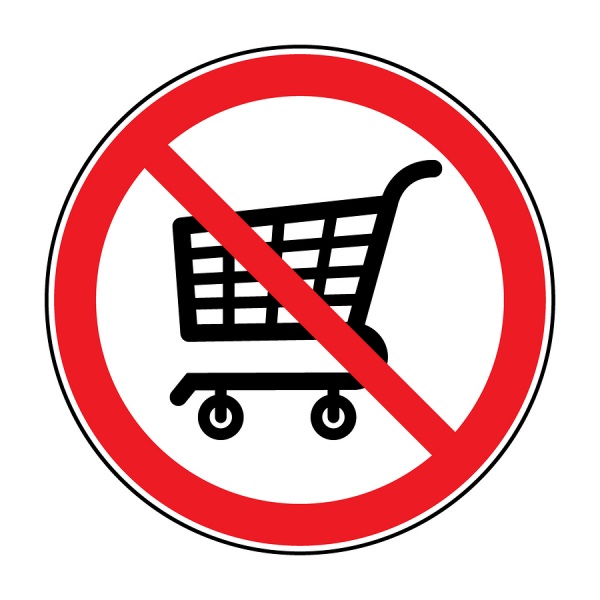Top 10 Best Practices to Keep Your SEO Successful

The first quarter is over, and we are heading towards the middle of the year. By this time, Google has already done at least a hundred small changes along with some pretty serious ones. Yes, we know better than anyone that the battle with the Search Engine giant never ends. They try to "fix" their algorithm, and we try to crack it. It's much like a dance, although if that's what dancing is like, I'd never go to a nightclub ever again.

Fortunately, there are some tricks you can use to make sure Google won't ruin your SEO efforts that easily. It's like playing a game with cheat codes, and yes, we have the cheat codes with us. There are many things to look for when optimizing your SEO efforts in the second quarter, but we will take a closer look only at the ten cornerstones that will ensure your SEO will remain successful throughout the year.
1. Make Regular SEO Checks
Google is actually pretty annoying with all its changes. On average, they have an update twice a day. Well, they most often revamp their algo in batches, but by the end of the year, there are usually 500-600 changes. One could wonder how such a flawed engine that needs so many revisions has more than 90% of the global market. Yes, the changes, more often than not, are necessary, but still. Whining about it won't change Google's behavior, so the next best thing is to adapt.

The first step for being flexible towards the updates is to have a regular SEO audit. There are three types of SEO audit in general - technical, SEO, and content. You need to have the right tools and knowledge to be able to conduct these tasks, and we explain how they work in more detail in this article. Naturally, don't expect to become an expert after a 5-10 minute read. If you want this to be done right, you might want to hire a professional team like Locus Digital, who have the tools, know-how, and actually do this for a living. It would be a lot less time-consuming and will save you a lot of effort and, ultimately, money.
2. Make Sure Your Website Is fast And Secure
Is there a more frustrating thing on this planet than a slow website? Yes, there is - one filled with malware and errors. These are considered huge red flags both by users and, naturally, by Google as well. Over time your website may get clogged, and some rouge files may find a way inside your coding. That will make your website slower and messier, and you will lose Google positions as a result. That's why a proper SEO audit is a must, as the technical part of it takes care of such problems.

A quick way to make your website faster than a cheetah on steroids is by minifying your CSS, JS, and HTML codes and removing all unnecessary parts. Of course, compressing images, videos, and other embedded visuals will take you a long way in your efforts. But one of the best things you can do is to use a CDN.
When your website is running at full speed without breathing heavily in the process, it's time to purge all malware and take care of your security. Make a code swipe for any ill intentions, and ensure your SSL certificate is up to date. This will make your website not only cleaner but more trustworthy, and thus Google will find it that much sexier.
3. Go Through Your Links Regularly
There is a dedicated place in hell for website owners who have broken links on their websites. OK, that's a bit harsh, but nothing bugs me more than a broken link on a website. After all, you are trying to take me somewhere. By not keeping on top of your links, you are crushing your chances to create a genuine user's journey, ultimately leading to lost sales, fewer customers, and frustrated users.

You can avoid all of this by simply checking every now and then whether all your links are up to date. Google has several brilliant tools to help you with this task, and using Google Search Console is the first among them.
Your internal links, however, are not everything you should look after. Also, the focus should be on all your backlinks and whether they are published on a respectable and relevant website. You should avoid finding a link to your website on a bad website, or you might get associated, which will draw down your Google score. So keep a closer look at who and where is sharing your blog posts, articles, or products and, more importantly, what is the anchor text. You can check how to create a respectable backlink portfolio from our dedicated article on the topic.
4. Be On The Lookout For A Trustworthy Website That Could Link Your Content
Regarding your backlinks, you should always be on the lookout for new opportunities to have your content shared on reputable and trustworthy websites. It's not that hard, really. If you are burning in what you're doing, surely you are following authority websites on the topic. Just check them out regularly, and don't hesitate to write to them if they are taking on a topic you already discussed on your blog. Furthermore, check if all their links are still active, and if any are missing, suggest to them to use your link instead.

However, the safest way to make sure your content will be shared is to make it, as a British would say, bloody brilliant. So invest time and effort in creating a proper article with statistics, source links, and references. Or, if you are not the next Shakespeare, you can always hire someone to do it for you.
5. Update Your Content Constantly
And while we are on the topic - you should update your content as often as you change your socks (which I genuinely hope you are doing it frequently). Google is all about relevancy, and you can't be relevant if you rely on an article written in 1786 by a French monk. So you need to produce new blog posts based on suitable longtail keywords constantly and, more importantly, make them as high-quality as possible.

You can also reuse some of your older posts that are still relevant, but you need to keep track of keyword changes and update your metadata accordingly.
However, one of the key elements you need to change for your content to work is to always be on top of your keywords. You can review your keyword significance by using Google Keyword Planner, GSC, and several other free Google tools. The terms people use to search stuff are always changing, and you should follow the trends closely. Whenever a keyword stops working, you need to remove it immediately and find a better replacement for your metadata.
Your metadata should be treated just like your content. It should always be unique, relevant, and filled with keywords. Great copy will take you a long way... or actually not that long - just to the top of Google Search Results.
6. Ensure User-friendliness
The content may bring in the users, but what really would hook them to your website, like Charlie Sheen to illegal substances and women with questionable morals, is your website's user experience. You can always try to juggle with chainsaws on the front page, but that's not actually what will transform your audience into customers, and that's the whole point of having a website in the first place.
You can start with the basics. Just placing a logo on the top left of your website will boost your trustworthiness by a ton. Your brand logo is like your seal of approval, and much like Seal the singer, it inspires trust in anyone who sees it. Adding all relevant information in your footer or on a dedicated page would also help a lot since people would be able to verify your existence, thus, eliminating one barrier in their customer's journey. A contact form or information is also a huge winner in this regard.

However, what would really keep the users on your website is the level of its interactivity. Add some extravagant features (not too extravagant, though, keep it classy), include an online cashout, and make your social icons attractive and as alluring as a house made of sweets in a German forest.
But user-friendliness means much more. You need to be able to make your content skimmable since nowadays, people simply don't want to read. They want the information chewed up and ready to swallow. On this note:
7. Have Images - A Lot Of Them
Over 20% of all Google searches in the US are done by images. With the rise of Google Lance, this percentage will only rise. Needless to say, you need to keep on top of the trends if you want to keep your Google crown untouched.
Images, however, are a two-edged sword since they are one of the heaviest elements you will put on your website. It's easy for pictures to compromise your website speed if they are not done with SEO in mind. You need to choose the size and format of your picture carefully. PNG offers outstanding quality, but it comes in larger sizes, which may compromise your website speed. So, please, for the Love of God, don't forget to compress your images. On average, they take around 21% of your website's weight, and if you don't squeeze them, they will bloat it. You can shorten your load time by 2 seconds with a simple compression.

The size of the images is not all that matters for SEO, though. Unique and high-quality photos make the difference between a website with a professional vibe and one that looks as if a 3-year-old did it by smashing the computer keyboard.
Also, never forget to name your file correctly and add an Alt Text. That's how Google's crawlers find out what you are trying to represent.
8. Readable URL Structure Is Key
As much as the content and imagery are important to stay relevant in Google, so is the URL and how it is done. Typically this is one of the easier things to fix if you manage to find it is broken. The URL is the first thing Google sees when entering your website, so you need to make it a bit sexier. And by sexier, I mean you need to keep it as regular as possible. So, first of all, get rid of all subdomains. They were considered cool at one point, but just like R. Kelly, no one likes them anymore, and no one wants to see them.

Then, make sure your strict hierarchy is not compromised at some point. A well-structured URL map helps Google, and Google loves to be helped.
Finally, make sure all your slugs are up to date, and if possible, add a keyword or two to them. You shouldn't compromise their coherence, though, so regularly checking if any of your new keywords may fit in a slug or two will bring your SEO efforts a long way.
9. Make Your Mobile Version Great Again
Google has taken a page from Trump's playbook and announced its Mobile-first index last year.. So let's hope they won't instigate a riot when Bing surpasses them, though it's fair to say this day is so far in the distance that it's practically a dot at the moment.
Some 63% of all searches in Google are done via mobile, meaning if your website is not responsive, you are screwed. Google loves pampering its users, and whatever they want, they get. So when the majority of searches are done via a mobile phone, naturally, the search engine will reward mobile-friendly websites.
There are several ways to make sure your design stays as mobile-friendly as possible. Needless to say, your website should be responsive, and the easiest way to do that is by adding a meta viewpoint tag in your page's header. This will tell the website to render the page based on screen size. One of the essential parts of having a winning website is it being interactive. If you are old school and still use WordPress and not Webflow as a website builder platform, keep in mind that many plug-ins that make your website interactive do not work on mobile. With Webfolw, there is no such problem as it uses HTML5 from the very get-go. Either way, if you need to have some razzle-dazzle on your page, go for HTML5.
To keep your SEO efforts on the right path, you need to check regularly if everything is fine with your website. One of the trickier parts is designing your buttons. You always have to build them with mobile in mind.
But most importantly, make sure to create one truly simple and intuitive navigation for your mobile version. If you don't have one, people will leave your website faster than the movie theaters after the end of the last Batman movie.
10. Use FAQ To Boost Your SERP Portfolio
FAQ is generally something that genuinely boosts user experience. Especially when it's based on relevant questions and not something you've written so that you can have this section. The easiest way to gather some questions is by directly researching "how" longtail keywords. As a bonus, they will also help you expand your SERP portfolio and make your website's genuine feeling a bit more devoted to what you are doing. After all, long-tail keywords are nothing more than genuine user inquiries. And of course, that's why it's Google's aphrodisiac since it gives relevant and direct information to the users, and that's precisely what the search engine wants.
Creating a FAQ section on your home page or dedicating an entire page for this endeavor is one of the simplest ways to make your website more visible. However, you need to keep a closer look at the questions you are answering since people's interests change, and so should your FAQ page.

Let's Recap
Oh, come on. Do you really need a recap after this explanation? To summarize it all - keeping your SEO successful is hard. Really hard. It takes time, effort, and if you don't have a dedicated team doing it, I'm sad to say, but you simply won't be able to allocate the time and resources to do it by yourself.
Luckily for you, we are the knight in shining armor that's come to the rescue. Locus Digital is one of the top search engine optimization agencies in Dallas, and we are always ready to go through all 10 points and a lot more without bothering you with the tiny details. We have the tools, know-how, and happy customers to prove it. So don't waste time and money trying to do it yourself, as you can just hire us for a fraction of the cost.
Book a free call, and let's discuss your inevitable rise to the top (of Google's search results).



